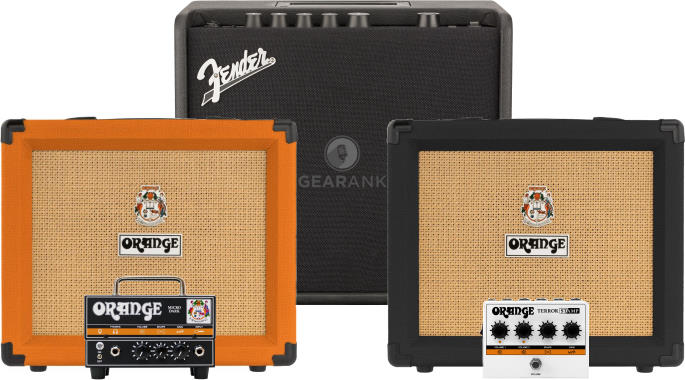
Disclosure
We recommend all products independently of 3rd parties including advertisers. We earn advertising fees from:
• • • • •

• • • • •
Amazon
As an Amazon Associate we earn from qualifying purchases.
• • • • •
More Guitar Amps
Competition between different amps in the $100 to $200 price range is fierce. So, if you’re looking for the best guitar amp under 200, you’ll have to sort through a lot of good quality options.
This is where we come in with our top-rated recommendations, covering the cream of the crop in three popular categories, Combo, Amp Heads, and Pedal Board Amps.
Orange continues to be dominant across all three categories, proving that guitarists are highly appreciative of amps that can provide great tones with simple controls. Fender also made the cut, leveraging the flexibility of digital amp modeling.
The Best Guitar Amp Under 200 – 2024
| Gearank* | SRC* | Check Price | ||||||
|---|---|---|---|---|---|---|---|---|
| Best Guitar Combo Amps Under $200 | ||||||||
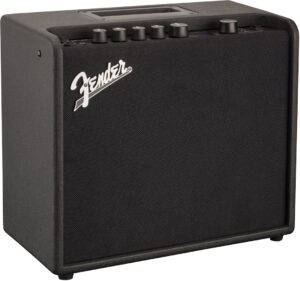 | Fender Mustang LT25 | 96 | 3850+ | |||||
 | Orange Crush 20 | 95 | 1150+ | |||||
| Best Guitar Amp Heads Under $200 | ||||||||
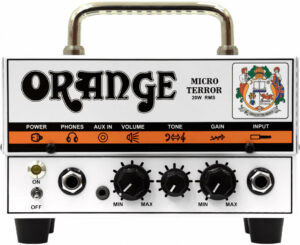 | Orange Micro Terror MT20 | 93 | 1600+ | |||||
 | Orange Micro Dark | 97 | 1050+ | |||||
| Best Pedal Board Amp Under $200 | ||||||||
 | Orange Terror Stamp | 93 | 325+ | |||||
Author & Contributors
Alexander Briones
I have been writing about and researching music gear for many years, all while serving as a music director at my local church. I engage in guitar playing and singer-songwriter stints, in addition to mentoring young musicians and teaching guitar and bass.
Best Guitar Amps Under 200 - Combo
Fender Mustang LT25
Cons
- Requires more tweaking to get good tone
Pros
- Versatile amp modeling and effects
- Good sounding Fender clean tone
- USB recording and software control
- Sleek modern aesthetic
The Mustang LT25 is a 25-Watt combo amp with an 8" speaker, part of Fender's popular Mustang line of entry-level modeling amps, loved for their good overall quality and portability.
The LT25, in particular, features 20 amp models, 25 effects, and 50 presets - which cover a wide range of tones, from Fender's classic clean tones to mid-crunch and high gain. That's a lot of features packed inside something compact and affordable.
While it's not as simple to operate as traditional amps, it is still more intuitive compared to other modelers. It has a good balance of features, presets, and parameter options while dropping some control options, the most notable of which is the lack of a mid-tone knob.
It is definitely one the best modeling amp under 200 and is a great pair for a beginner electric guitar. It can even be used as an acoustic guitar amp as long you stick to clean settings. But note that dedicated acoustic amps are still better for acoustic guitars.
More in-depth control is available via software control when plugged in using the USB port. Other beginner-friendly features include having a headphone jack for quiet practice, and it has a built-in tuner. To meet the demands of home recording, it also comes with USB recording.
Get the Fender LT25 if you want nothing less than the best budget guitar amp with amp modeling.
Specifications
- Power Rating: 25-Watts
- Speaker Size: 8”
- Channels: 1
- Controls: Gain, Volume, Treble, Bass, Master, Preset, Back, Save, Menu, Tap
- Amp Models: 20
- Effects: 25 (Modulation, Reverb, Delay)
- Inputs/Outputs: 1 x 1/4", 1 x 1/8" (Auxiliary Input), 1 x 1/8" (Headphones)
- Dimensions: 14.5" x 16.8" x 11.9"
- Weight: 14.9 lbs
| Website | Source | *Rating Value |
| Guitarworld | Stuart Williams | 90/100 |
| Guitarist Next Door | Teemu Suomala | 92/100 |
Demo
Orange Crush 20
Cons
- Limited functionality
- Clean tone is not as good as overdriven
- No Reverb
Pros
- Simple operation
- Great sounding overdriven tone
- Good build quality
- Distinct Orange aesthetics
While most big-name brands have gone the modeling route, Orange maintains their traditional 2-channel design in many of their amps - and they do so with continued acclaim.
A case in point is the Orange Crush 20, which enjoys high ratings despite its straightforward functionality.
What makes it stand out is its 4-stage preamp that adds realism to its tone giving it a great sound when overdriven. With minimal tweaking, it produces great-sounding tube-like overdriven tones at manageable volume levels.
It also easily stands out visually, with its distinctly Orange profile. And build quality is more than what you'd expect for its price. If you want to practice quietly via headphones, this amp comes with a built-in cabinet simulator.
The main weakness of this amp is its clean tone, so if you are looking for a good clean sounding amp, this is not for you.
The Orange Crush 20 is a true-to-form plug-and-play amplifier for guitar rock styles. Hard to go wrong with its tried and tested simplicity and killer tone.
Specifications
- Power Rating: 20-Watts
- Speaker Size: 8”
- Channels: 2
- Controls: Clean/Dirty Switch, Dirty, Treble, Middle, Bass, Gain, Clean
- Amp Models: None
- Effects: None
- Inputs/Outputs: 1 x 1/4", 1 x 1/8" (Aux), 1 x 1/4" (Headphones)
- Dimensions: 12.8" x 14.67" x 7.75"
- Weight: 15.8 lbs
| Website | Source | *Rating Value |
| Guitar World | Richard Blenkinsop | 80/100 |
| Guitars For Idiots | Matt Dunn | 86/100 |
Demo
Best Guitar Amp Heads Under $200
Orange Micro Terror MT20
Cons
- Limited functionality
- No reverb
- Not for those who want great sounding cleans
Pros
- Great sounding tube overdrive tone
- Lively and responsive
- Can go loud and still sound good
The Orange Micro Terror is an amp head that features a combination of tube and solid state design.
This 20-Watt hybrid tube amp sports a 12AX7 preamp tube paired with a solid state poweramp, reproducing classic Orange tones. The resulting sound is organic and lively, even when the amp is cranked.
As expected from Orange, this is no modeling amp. Instead, it's focused on reproducing the iconic British Orange tone with minimal complication, and it does it very well.
With its compact profile, this amp head has limited tone shaping controls which include volume, tone, and gain knobs.
Speaking of compact, the Micro Terror MT20 is packed inside Orange's distinct lunchbox-style all-metal amp head design.
If you're a fan of the classic Orange tone, then this is a great portable amp is a great portable practice amp solution.
Specifications
- Power Rating: 20-Watts
- Speaker Out: 1/4"
- Tubes: 12AX7 (Preamp)
- Channels: 1
- Controls: Volume, Tone, Gain
- Effects: None
- Amp Models: None
- Inputs/Outputs: 1 x 1/4", 1 x 1/8" (Aux)
- Dimensions: 5.3" x 6.49" x 3.6"
- Weight: 1.87 lbs
| Website | Source | *Rating Value |
| Premier Guitar | Jordan Wagner | 90/100 |
Demo
Orange Micro Dark
Cons
- Lack of EQ limits tone shaping
- Single channel only
- Headphone out tonality is harsh and only for last resort practicing
Pros
- Loud for such a small amp
- Simple controls
- Great tone across the gain range. Surprisingly good cleans
- Includes an effects loop
By its name and appearance, the Micro Dark was designed to be a smaller version of Orange's Dark Terror amplifier. Surprisingly enough, the Dark Terror is rated at 15W (tube) while the Micro Dark is at 20W (solid state). Numbers aside, the Micro Dark is a hybrid amp tuned to sound and feel close to the Dark Terror.
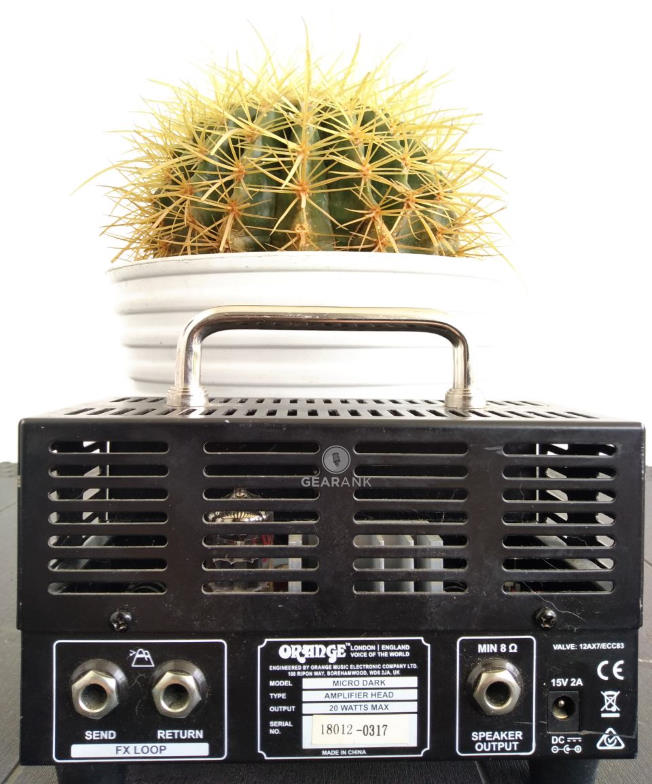
Figure 2: The Orange Micro Dark's rear view and outputs, as well as its effects loop. See a larger version in the Extended Review.
I was surprised to see that it was affordable, and at 20W, I thought it would be a lot quieter, considering the volume difference between solid state watts and and tube watts.
Tube Amps sound louder at the same wattage because they are designed to be pushed beyond their power rating for more saturation.
Most solid state designs are designed to operate around their clean ceiling, as solid state clipping is nowhere near as good sounding as tube clipping. Hence a 20W solid state amp will run quieter than a pushed 20W.
Tone-wise, the Micro Dark's gain range can take it from sparkly clean to blues grit, all the way to modern metal. The "Shape" knob is a combination of an EQ and a contour control (as seen on some Marshall amps) that shifts the tone from dark to bright. The sound quality is really high, considering its small size and price.
Others might feel that the lack of a typical EQ can be seen as a minus. Personally, I like the pedal-like simplicity of singular tone control.
I often found myself going towards both extremes depending on the genre.
I also play an all-tube Dark Terror. Listen to comparisons I recorded in the extended review.
All in all, The Orange Micro Dark is one of the best value purchases I've ever made. It's a fun piece of gear that I use a lot for both rehearsals and recordings and has the potential to be a main amp for smaller gigs with less overall stage volume. Get it if you want a small cheap amp for rehearsals, recording, or as a backup for gigs. It's much more than just a toy that you play with a few times and forgets.
Specifications
- Power Rating: 20-Watts
- Speaker Out: 1/4" (8 Ohm)
- Tubes: 12AX7 (Preamp)
- Channels: 1
- Controls: Volume, Shape, Gain
- Effects: None
- Amp Models: None
- Inputs/Outputs: 1 x 1/4", 1 x 1/4" (Headphones), 2 x 1/4" (Send/Return)
- Dimensions: 5.3" x 6.5" x 3.74"
- Weight: 1.72 lbs
| Website | Source | *Rating Value |
| Gearank | Raphael Pulgar | 94/100 |
| Guitar | Richard Purvis | 80/100 |
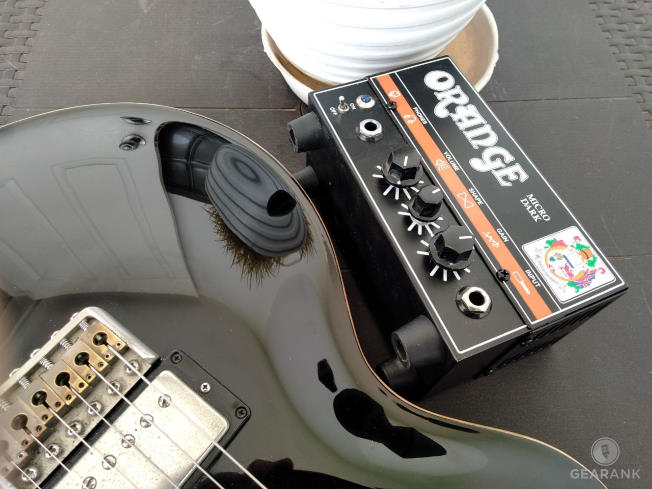
Best Pedal Board Amps Under $200
Orange Terror Stamp
Cons
- Lacks volume
- Limited tone-shaping controls
- Clean tone is not as good
Pros
- Orange tone in a pedal
- Genuine tube preamp
- Useful volume switch feature
- Pedalboard-friendly FX Loop
The Orange Terror Stamp is a pedalboard friendly version of their popular Terror micro amp, complete with its own genuine tube preamp.
It sports the same hybrid design with a 12AX7 preamp tube paired with a 20-Watt solid state poweramp, featuring an all-analog design that reproduces the distinct overdriven tone of Orange amps.
Aside from its floor-based form factor, the Terror Stamp differs from its amp head counterparts with its volume footswitch, which lets you switch between two volume levels that you can set yourself. It is meant to behave like a boost but without any coloration and relying on just the volume setting.
Tone shaping is done with just one knob, which lets you go from copped to mid-emphasized voicing.
It has great features that make it pedalboard friendly, including buffered effects loop, headphone output with 4x12" cabinet simulation, and a speaker output.
This is the best amp under 200 for those who want a pedal-based solution.
It is a no-brainer for fans of Orange, but for those who are not, this is a great alternative compact amp if you are into low to mid-gain overdriven tone.
Specifications
- Power Rating: 20-Watts
- Speaker Out: 1/4" (8/16 ohms)
- Channels: 1
- Tubes: 12AX7 Preamp
- Controls: Volume 1,Volume 2, Shape, Gain
- Amp Models: None
- Effects: None
- Inputs/Outputs: 1 x 1/4", 1 x 1/4" (Headphones), 2 x 1/4" (Send/Return)
- Power Source: 15V DC 2A (Included)
- Dimensions: 2.4" x 5.4" x 3.9"
- Weight: 0.84 lbs
| Website | Source | *Rating Value |
| Gearspace | Arthur Stone | 95/100 |
| Guitar World | Rob Laing | 90/100 |
| MusicRadar | MusicRadar | 90/100 |
| Audiofanzine | Brian Johnston | 100/100 |
Demo
Things to Consider When Buying a Guitar Amp under $200
Cheap guitar amps' quality is steadily climbing, which is good news for the average guitarist. But it pays to know what to look for when choosing from the many available budget guitar amps under 200. If this is a stretch, you should have a look at our best amps under 100. This may save you a few dollars. Alternatively, you may want to step it up and look at our best guitar amp under 300, or if you are really looking for quality, read our recommendations for the best guitar amps under 500.
In any case, the following considerations will help you.
- Combo amps are guitar amplifiers packaged with speakers, while amp heads and pedal amps do not come with speakers. Combo amps are more common because they can be used immediately without the need for an extra purchase - making them more practical and easy to acquire. You should go for a combo amp if you want the best practice amp under 200.
Amp pedals and heads on the other hand require a separate speaker purchase to work, which adds to your cost, and you also have to understand a bit more about speakers and compatibility before you even think of getting one.
The main advantage though is portability and the ability to mix and match amps with your preferred speakers - a decision which usually is reserved for more experienced guitarists.
- Power rating gives you a good idea of how loud an amp can go, and in the sub $200 bracket, the power ratings are usually around the 20-Watt range.
For this reason, most of the amplifiers in this price range are meant for practice or for small venue jamming.
Thankfully, loud is not always better, amps with lower power ratings allow you to get good cranked tones at lower volumes, ideal for bedroom or apartment use, and for home recording.
- The difference will usually be subtle to a beginner's ear, but generally speaking, the bigger the speaker, the more low-end it can reproduce. And this added low-end is ideal for modern musical styles.
Smaller speakers have more articulation and emphasis in the middle frequencies, making them great for practice amps, or for those who prefer the styles of blues and classic rock. They are also lighter which makes them a good choice for a portable practice amp.
Some manufacturers utilize dual speakers in their combo amp design, resulting in a stereo sound that's closer to how you hear guitars in music tracks, as opposed to how guitars sound and feel on stage.
- Many digital amps in this price range are packed with multiple guitar and bass amp models" (some manufacturers call these "channels" but they are the same in principle) that let you switch between different sounds.
The most common configuration is still the 2-channel setup with one for clean and the other for overdriven sounds.
The more amp models, the more tone options you can choose from, which can be good if you prefer deep tone customization, or bad if you just want minimal tweaking and don't want to be distracted by tone chasing. Some even come with acoustic and bass guitar amp models.
- Many of the amps included in this list come with built-in effects, the most common of which is Reverb, while others offer a whole host of effects from modulation, to delay to distortion and many more.
These effects help simplify your practice rig, especially if you don't really need high quality effects for your practice routine.
- There was a time when all tube amps were recognized as the only real option for a truly great tone for some styles and many still see them as the pinnacle for their organic and detailed sound.
But in the lower price bracket the 'all tube' options are limited and the modelling amps are now recognized as producing some pretty convincing versions of the classics.
As such, the more practical choice would be to get a solid state amp with digital sound processing, especially for those who want to play with different tones and effects.
There are a few amps which incorporate a preamp tube along with solid state amplification and digital modelling. This option may not impress some tube purists but they do impress many players, so much so that many of them rate highly.
- USB connectivity is now becoming standard feature on many amps, even in this price range. This lets your amp double as an audio-interface, allowing you to capture your guitar playing for practice, evaluation, and even for producing your own songs.
Other notable features that you want to look for include looping, tuning and modern preset management with sharing and Bluetooth connectivity. If you are not into tweaking and recording, then you can go for more streamlined plug-and-play amps.
In those situations, when you don't have access to a power supply, you may want to consider having a look at the best battery powered guitar amp.
Amp Head / Pedal Amps vs Combo
Power Rating
Speaker Size
Amp Modeling / Channels
Built-in Effects
Solid State vs Tube
Direct Recording, Tuning and Other Features
Guitar Amp Selection Methodology
The first Edition was published in 2016.
To be considered in this guide, our criteria was simple, it has to be a guitar amplifier priced between $100 and $200, and be available from a US based retailer. This includes the three major types of amplifiers, combo, amp head and pedal amps. For this edition, we ended up with a short list of 44 amps (see the list in the Music Gear Database), which then entailed the gathering and analyzing of over 51,700 reviews, ratings and forum discussions. All these data were then fed into the Gearank Algorithm, which gave us the rating scores out of 100 for each amp. This allowed us to zero in on what the market truly considers as the best amps in this price range, divided into three categories: Combo Amps, Amp Heads and Pedal Amps. For more information about our methods see How Gearank Works.
About the Author and Contributors
Here are the key people and sources involved in this guide's production - click on linked names for information about their music industry backgrounds.
Lead Author & Researcher
Alexander Briones
I have been writing about and researching music gear for many years, all while serving as a music director at my local church. I engage in guitar playing and singer-songwriter stints, in addition to mentoring young musicians and teaching guitar and bass.
Before I simplified my rig with guitar processors, I owned and used a number of Fender amps. My dad now owns my old Fender Frontman practice amp, and amazingly, it still works well! These days, I still get to play on a Fender Mustang amp which I gave to my son, hence my admitted preference to Fender's voicing, influenced by the tone of my favorite guitarists which include Stevie Ray Vaughn and Eric Johnson.
Contributors
Raphael Pulgar: Orange Micro Dark Review
Jason Horton: Editing and Illustrating.
Media
Main/Top Image: Compiled using photographs of the Fender Mustang LT25, Orange Crush 20, Orange Crush 20RT, Orange Micro Dark and Orange Terror Stamp.
The videos have been embedded in accordance with YouTube's Terms of Service.
The individual product images were sourced from websites, promotional materials or supporting documentation provided by their respective manufacturers with the exception of the additional Orange Micro Dark photographs which were taken by Raphael Pulgar.
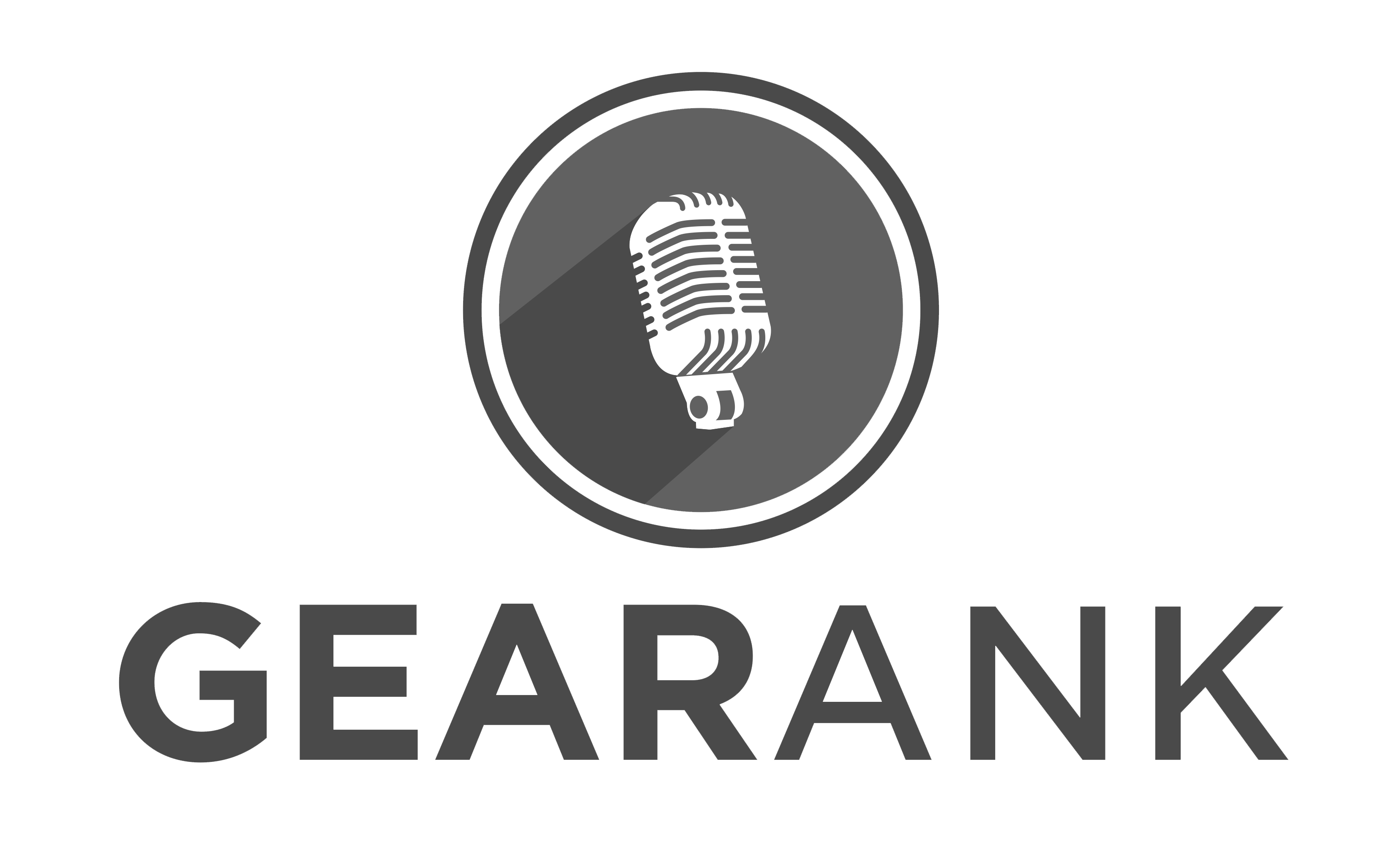
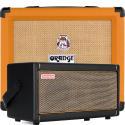
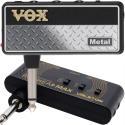
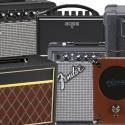
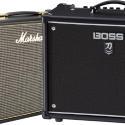
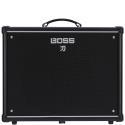
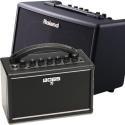
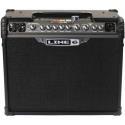
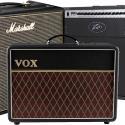
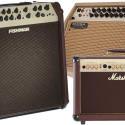
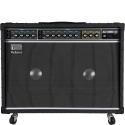
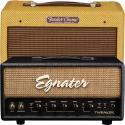
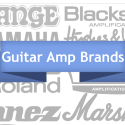 The Best Guitar Amp from the
The Best Guitar Amp from the
Absolutely agree!
You’ve done a great job at picking out the best beginner and professional gear alike. I would just add the Vox Mini 5 to your fantastic list.
The following amps came off the recommended list when we published the December 2022 Edition:
Publication of our April 2022 Edition resulted in the Joyo BanTamP Zombie coming off the recommended list above.
We’ve removed the Roland Micro Cube GX due to it being discontinued.
We’ve moved our recommendation for the Blackstar ID:Core 40 V3 to The Best Guitar Amps Under $300 due to a price increase.
We have moved our recommendation for the Yamaha THR5 to the Guitar Amps Under $300 guide due to a price increase.
Publication of our July 2021 Edition resulted in the following amp coming off the recommended list above: Fender Champion 20.
As a result of our August 2020 update the following amps came of the recommended list above:
“Smaller speakers have more articulation and emphasis in the middle frequencies, making them ideal for intimate practice, or for those who prefer the style of blues and classic rock.”
Is it correct, or you mean bigger speaker instead of smaller? Thanks
Yes it is correct.
Smaller speakers generally lack low frequency response (think laptop speakers), which result in more pronounced middle frequencies. This mid frequency bump is appealing to guitarists, as it emphasizes picking attack and dynamics.
Bigger speakers are fuller sounding because they can handle lower frequencies better, but this same bass tends to drown some of the middle frequencies.
Today we removed the following amp from our recommended list above due to a price increase, but you can still read our analysis of it: Marshall MG30CFX.
With today’s update of this guide one of the amps we were previously recommending has dropped off the list but you can still read our meta review: Vox Valvetronix VT20X
We have removed the following amp from the recommendations above due to a lack of availability, but you can still read about it: Blackstar ID:Core 40.
Champion 40 has a 12″ speaker, not 8″. I own one.
Thank you very much for pointing that out – I’ve corrected the mistake above.
Hey I just want to mention that BOSS KATANA 50 is one of the best solid state for the money right now
Its 1×12, practicable, gigable and recordable tone amp
So, I think it is going to beat all of this list
Thx
Our data supports this comment – the Boss Katana-50 currently has a Gearank score of 90 – read more about it at Amazon.com.
The only reason its not currently in our recommended list above is because it was released the month after we published this guide – there’s a very good chance the Katana-50 will be included when we update this guide.
An update to the above comment – the Boss Katana-50 now has a street price above $200 so it’s no longer eligible for this guide.
Today we removed the Fender Mustang II v2 because it has been discontinued by Fender – you can still read our meta review: Fender Mustang II v2 Meta Review.
Today we removed the Blackstar ID:Core Stereo 20 from the list above due to unavailability.
You can still read our meta review: Blackstar ID:Core Stereo 20.